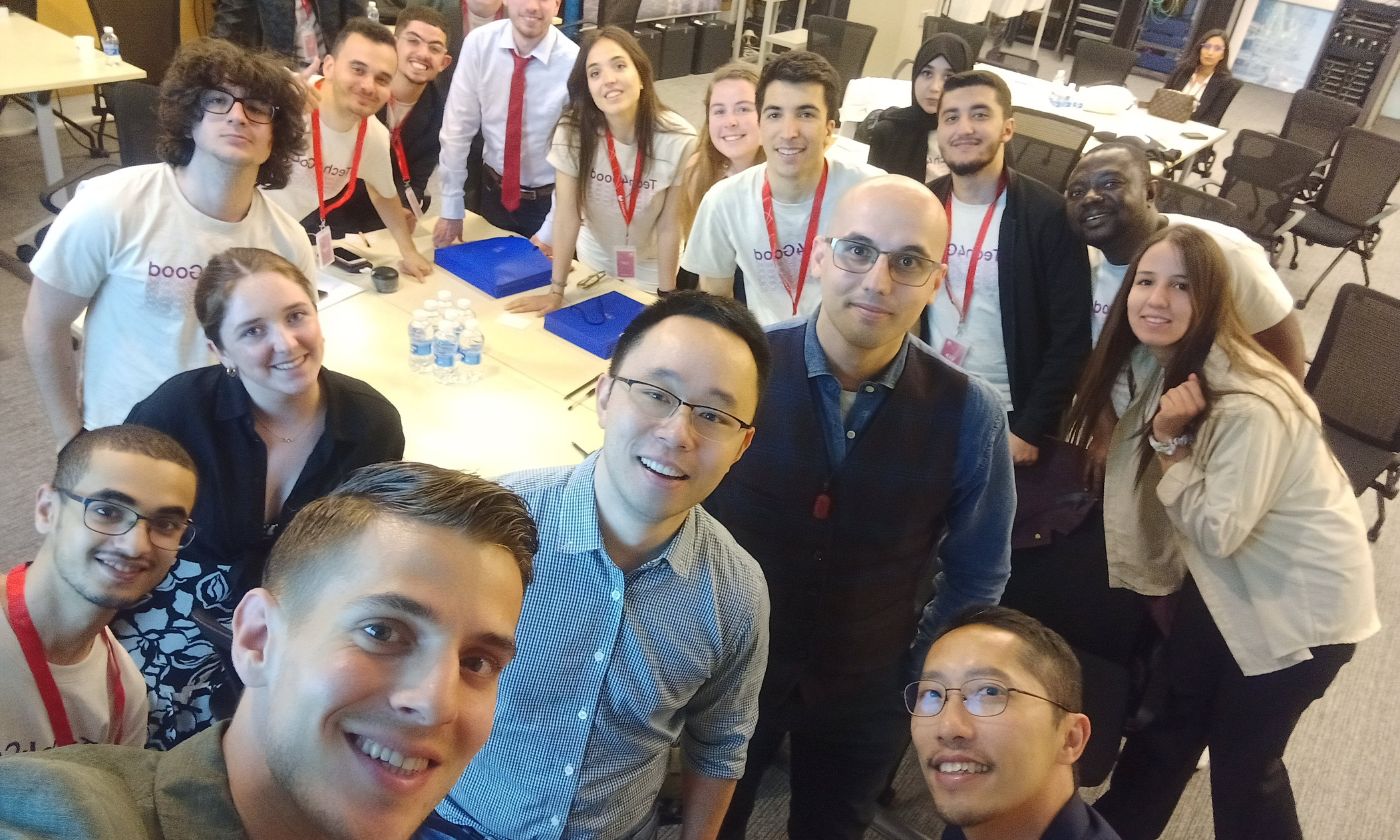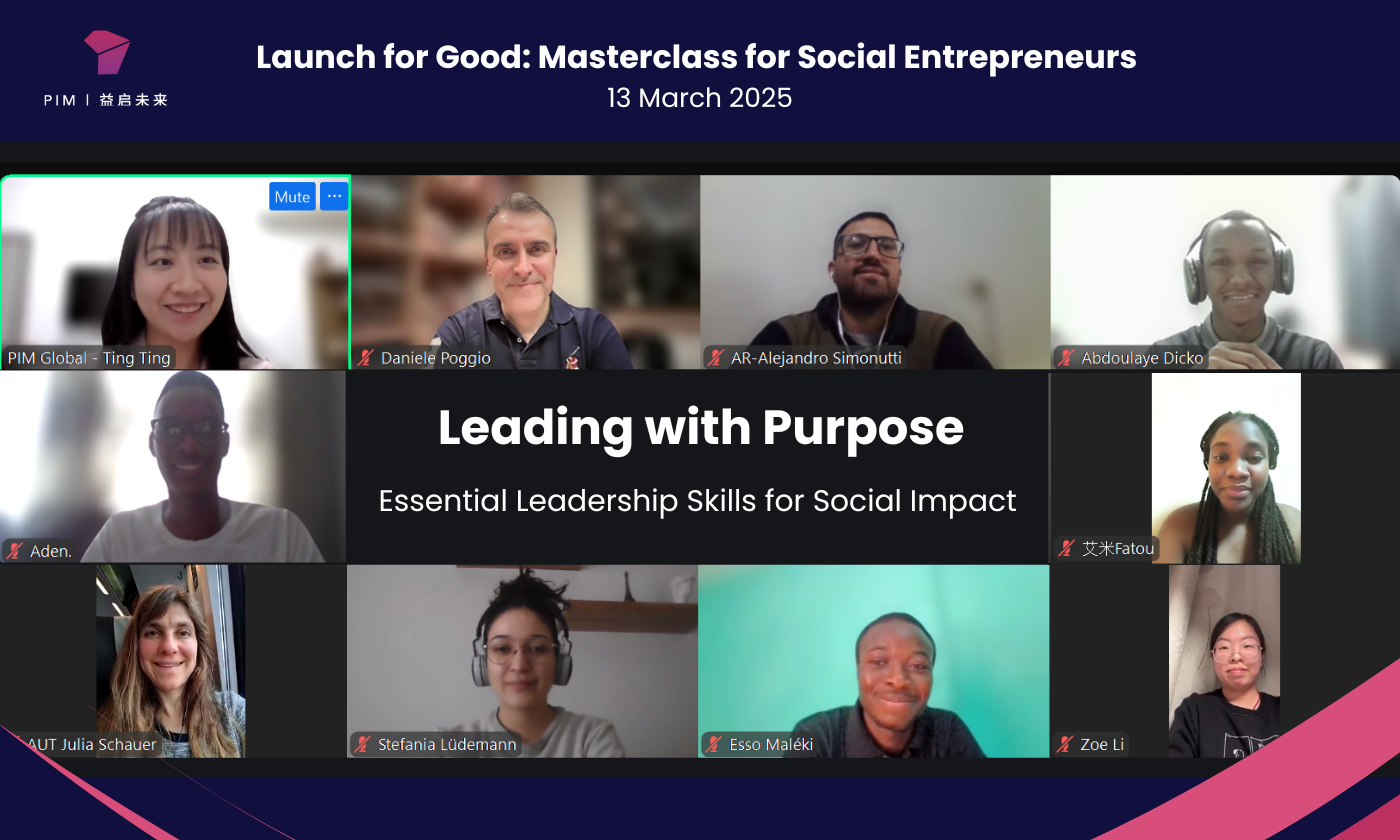Kenny Leung, PIM’s lead for the China Startup Sprint program first crossed paths with PIM in 2013. But it wasn’t until 2021 when he first heard about PIM’s idea for the China Startup Sprint that he joined and became an integral part of the program’s development, nurturing techno entrepreneurs across the globe.
The China Startup Sprint is a program designed to bring young tech entrepreneurs from all over the world to China to learn about the latest high-tech products and technologies while also inspiring them to utilize similar technologies to solve social and environmental challenges in their home countries. The China Startup Sprint also allows young tech entrepreneurs to have an immersive cultural experience in China. As of 2023, the program’s participants have also been the Tech4Good Global Competition’s top three winning teams.
Kenny holds a BBA honors degree from the City University of Hong Kong and grew up with a passion for business and the aspiration of entering the for-profit industry. But Kenny realized he wanted to be at the front line working with stakeholders and doing community development work. Hence, he made the bold decision to enter the social impact space.
From 2008 to 2018, Kenny served as the Area Manager of North China and Office Manager of the Beijing Representative Office for World Vision – the largest child-focused private charity in the world aimed at tackling the root causes of poverty. There, Kenny launched various programs benefiting less privileged children and families in China, including child protection, human trafficking prevention, water sanitation and hygiene, child well-being, disaster risk reduction, community-driven development, urban migration, and health and education.
“I’m very lucky to be involved in the social impact industry because I feel very fulfilled. My life is very fruitful because I can use my knowledge to make a change in the world,” says Kenny.
In 2013, Kenny first learned about PIM in Beijing. He admired how PIM brought young people from different professions together to make a difference in the world, and a friendship began to bloom. Then in 2021, when he heard about PIM’s plans to start the idea for the China Startup Sprint, Kenny took the lead for the program without hesitation because he was moved by its overarching theme of youth development and its objective to allow young people from across the world to learn about the latest technologies in China and develop products that will serve their home countries.
Kenny has always been proud of the students he worked with. Coming from all parts of the world, the students traveled a long way to meet new friends and gain new experiences outside of their comfort zone. Most of them have a solid background in STEM, but at the initial stage of the program, they were not familiar with the business aspect of techno entrepreneurship or social entrepreneurship, such as developing business plans, engaging with stakeholders, appealing to investors, budgeting, marketing, etc. And since the stakeholders for each project are different, there was no golden rule of success.
Along the way, the students were challenged, questioned, and critiqued by their peers, and there were many times they felt discouraged. Every time a team doubts its ability to deliver its desired results, Kenny would patiently tell them that they are already making good progress and that failure is nothing but a stepping stone for them to know what to do best. And the teams moved on every day with curiosity, commitment, passion, and perseverance, until they each developed impactful solutions that are of value to the world.
The team that left Kenny with the biggest impression was FarmAI – a team from Algeria that worked on developing an AI-powered solution that allows farmers to detect diseases in their crops through drones. Like other teams, they encountered adversities but always got back on track and followed through. After the China Startup Sprint program, upon their return to Algeria, the students went to farms to do pilot testing with the farmers and explained their initiatives in detail and with extensive patience. The farmers saw the passion in the students’ eyes and trusted them wholeheartedly. They were eager to try out the machines and share their feedback. It was unquestionably a learning opportunity for both ends – a process of two parties understanding each other to tackle a worldly issue – and Kenny can not wait to see the outcome of their project.
In the eyes of many, Kenny is a humble and nurturing soul. As a natural mentor, Kenny believes social entrepreneurship is people-oriented, and educators have an obligation to “encourage students to have the eyes of empathy to the community.” Stakeholder engagement and needs assessment are vital for creating a solution that improves people’s lives. Furthermore, educators must acknowledge that learning takes time and establishing a startup is never easy. The students will fail, and likely many times, and we cannot force students to be perfect. Instead educators must provide encouragement and guidance along the way. Sometimes students may seem stuck, but the seeds of knowledge are already there, and when they have hands-on experience to try and receive supportive mentorship, they will be able to utilize this knowledge and find a better solution.
Overall, the program has allowed Kenny to look at high-tech through a more positive lens by working with the talented participants of the program. One of Kenny’s favorite aspects of the program is that it provides an amazing platform for global young talent to open their eyes to not just the latest technologies, but also the rich culture and history of China. It is intriguing to see how Chinese culture bonds the young people together. Looking forward, Kenny hopes to see opportunities for young people across the globe to develop technological solutions that will make a social impact on communities in China, and pursue educational or employment opportunities in the ancient yet modern nation.
For more information about PIM’s China Startup Sprint program, please visit us at PIM China Startup Sprint or contact us at https://www.pimglobal.org/contact-us/.

“I’m very lucky to be involved in the social impact industry because I feel very fulfilled. My life is very fruitful because I can use my knowledge to make a change in the world.”
Kenny Leung
Hong Kong, China
Startup Investment Lead
Kenny is a seasoned executive and board member in the Non-Governmental Organization (NGO) field with 15 years of experience on organizational and people development. Kenny graduated at the City University of Hong Kong majoring in Business Administration and Project Management. At the earliest years of career, Kenny worked in a global quality management firm targeting to implement international standards and compliances to the hotel industry. In 2006, Kenny had a chance to join a global program in Kenya for community development and social impact projects. Since then, Kenny has spent full time in the NGO field, participated in some interesting development programs in North Korea, Inner Mongolia, Hebei province and lastly stationed in Beijing for about 7 years. In the past few years, Kenny was an Operation Director and Chief Executive in Chow Tai Fook Charity Foundation and Wu Zhi Qiao (Bridge to China) Charitable Foundation respectively to drive sustainable development projects in Mainland China.




